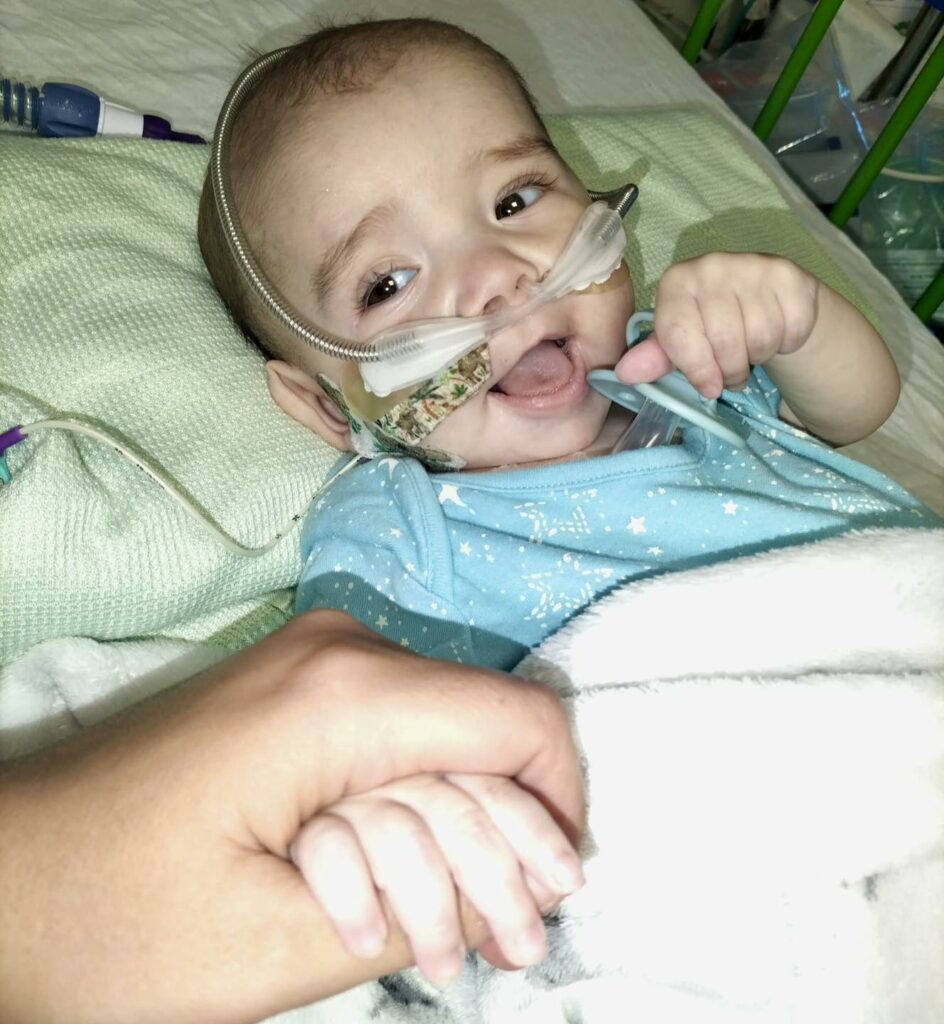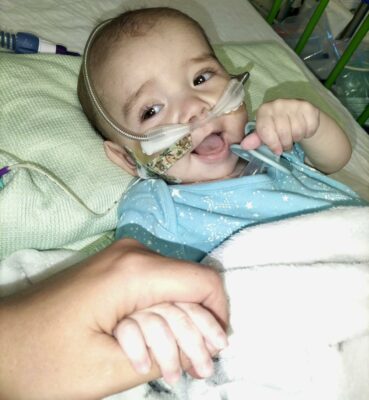Arlo’s Story

This is Arlo. He got to go home last week after spending nearly a year of his short life in hospital!
When Arlo was just four-months-old, his mum, Alex, noticed that he had a large soft spot on the top of his head. She took him to see the GP, who referred him to the Noah’s Ark Children’s Hospital for Wales where a blood test confirmed an abnormality.
Arlo was taken to his local hospital where after further tests. He was given an emergency blood transfusion and shortly after, diagnosed with Juvenile myelomonocytic leukemia (JMML), a rare form of the blood cancer that affects children.
Arlo was transferred to Rainbow ward, the specialist paediatric oncology unit for Wales at the Noah’s Ark Children’s Hospital. He was put on an intensive course of chemotherapy and his parents had to make the devastating decision on whether Arlo would undergo an operation to remove his spleen. Without it, Arlo had only weeks to live. But the surgery carried its own significant risks, with only a 10% chance of survival.
Thankfully, the surgery was a success but there was still so much for the family to endure. Arlo was transferred to Bristol Children’s Hospital where, once stable enough, he underwent a bone marrow transplant.
Mum, Alex, said: “Arlo needed help breathing with a piece of equipment called high flow. But as a result, he developed an unsafe swallow which meant that he’s never eaten food. So after coming back from Bristol, he spent several months as an inpatient after his transplant. Play specialist, Allison, spent hours incorporating messy play into Arlo’s routine to encourage him to play with food. She would crush up cereal and play cars in the ‘sand’ to encourage him to bring the food to his mouth and get used to the textures.
“She was absolutely amazing with Arlo. Not only did she play with him, she would watch him so that I could get something to eat or even have a shower.”
It’s thanks to the ongoing support of people like you that the Noah’s Ark Charity provides funding for the play specialist team, meaning that more children like Arlo can be supported in their treatment and recovery through play.








